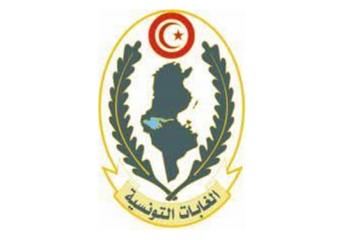Estimating the costs/benefits of REDD+ in Lebanon, Tunisia and Turkey Liban, Tunisie, Turquie
![]() AGRICULTURE
AGRICULTURE ![]() ENVIRONMENT
ENVIRONMENT ![]() FORESTRY
FORESTRY ![]() TRANSVERSAL
TRANSVERSAL


Services: Strategic analysis and foresight, Technical and economic advice, Diagnostics and feasibility studies
Countries: Liban, Tunisie, Turquie
Dates of intervention: 2013/10 - 2014/03
Amount executed: 100 450 €
Total amount of the service: 100 450 €
Main backer: Agence de coopération technique allemande - Client
Main beneficiary: Direction générale des forêts de la Tunisie
Other beneficiaries: Direction générale des forêts de la Turquie
Support provider: SalvaTerra
Experts: Olivier BOUYER, Maden LE CROM, Jérôme MAURICE
Certificate of satisfactory executionAnalyse coûts-bénéfices de la REDD+ au LibanCost-Benefit Assessment of implementing LULUCF accounting rules in TurkeyAnalyse coûts-bénéfices de la REDD+ en Tunisie
Context of the service
The study aimed to estimate the following costs/benefits:
- Indirect benefits due to the valorization of ecosystemic, market and non-market goods and services. Calculations of the total economic value of the forests used included: direct use values (wood, NWFP); indirect use values (ecosystem services: watershed protection, water purification, etc.); option values (for future uses) non-use values (legacy value, existence value);
- Direct benefits: valorization of greenhouse gas emission reductions and/or increases in carbon sequestration;
- Direct and indirect costs: transaction and implementation costs related to REDD+ activities.
Services provided
In Lebanon, analyses focused on forest firefighting, reforestation, sustainable wood energy exploitation and land use planning. In Tunisia, reforestation, overgrazing control, forest management and firefighting were studied. In Turkey, the analyses covered the activities of Articles 3.3 and 3.4 of the Kyoto Protocol: reforestation, forest management of stands existing before 1990.
The analyses showed that most of the value of forest ecosystems is concentrated in NWFPs and not in wood products. In addition, the analyses were hampered by the lack of data to enhance ecosystem services. Despite the low carbon potential of Mediterranean forest ecosystems (high abatement costs) and the uncertainties of calculation (lack of data), it is estimated that the socio-economic and environmental benefits of REDD+ would outweigh the additional costs.
Summary of the service
Analysis of the costs/benefits, market and non-market, environmental, social and economic, to enter the REDD+ mechanism (Lebanon, Tunisia) or the LULUCF mechanism (Turkey): Identification of baseline vs REDD+/LULUCF scenarios; Estimation of the costs and benefits, direct and indirect, of forest preservation actions; Updating the total economic value of forests in the three countries; Recommendations to decision-makers.